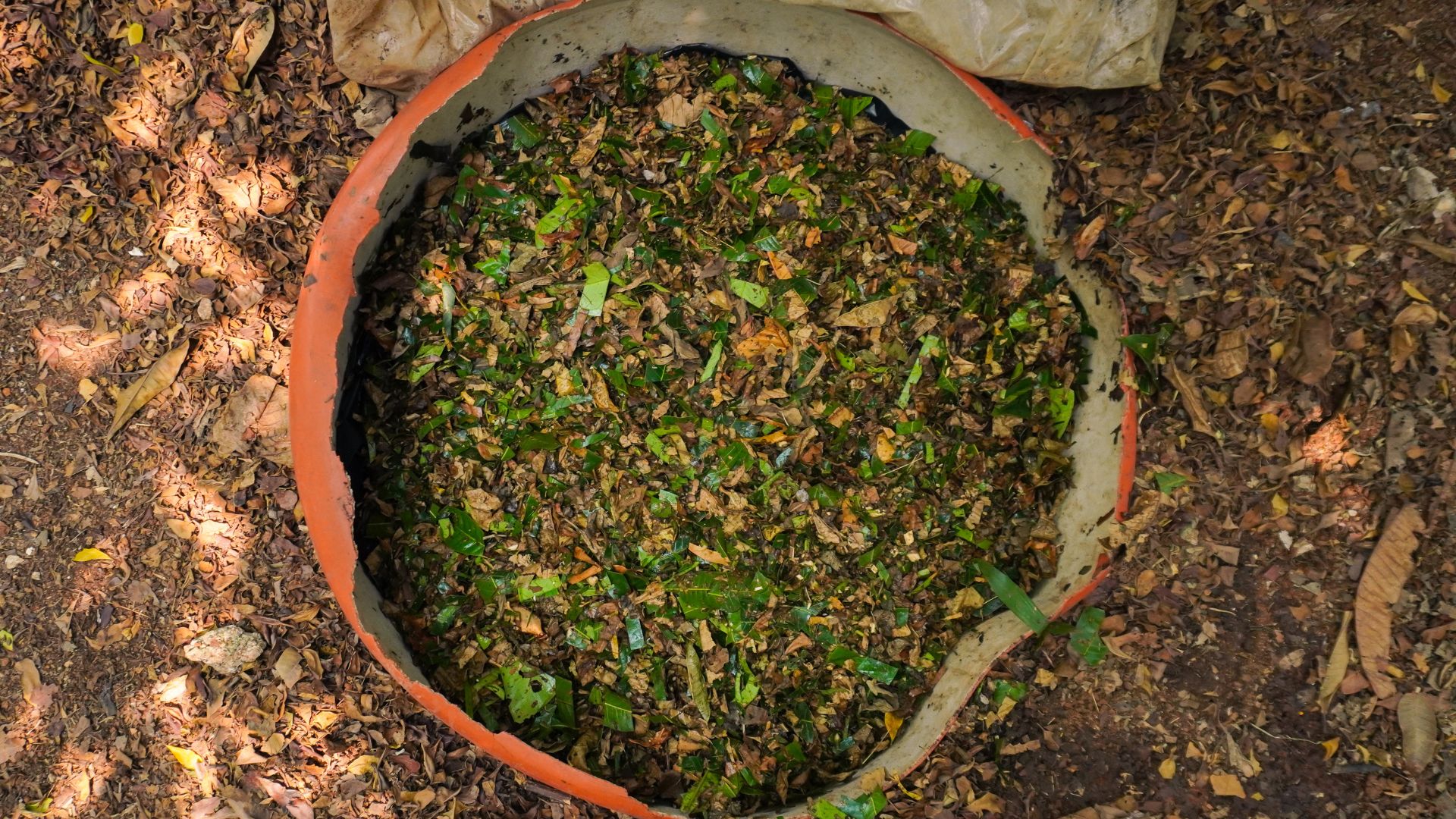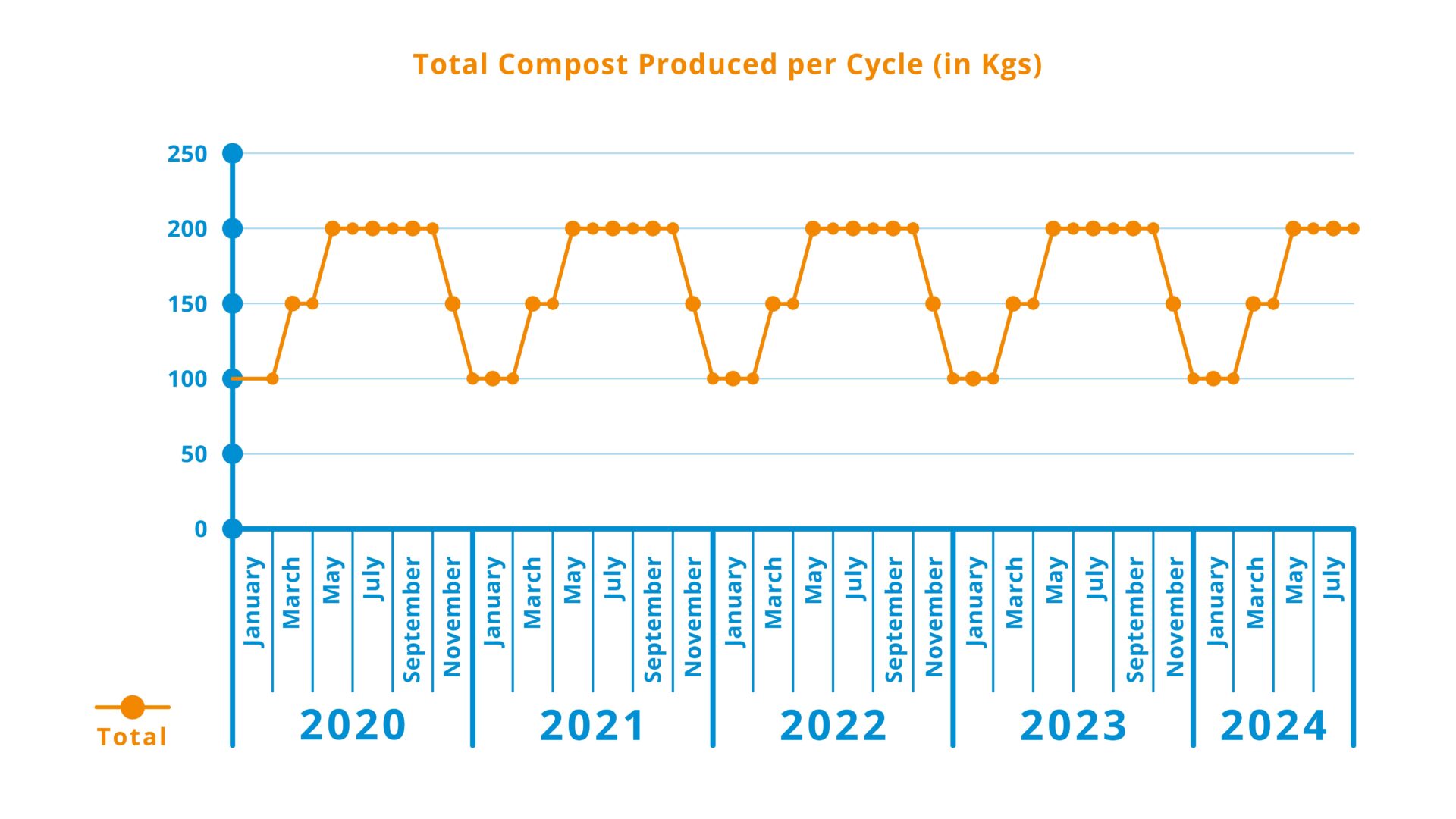Greening the Campus with Our Homemade Compost
Alam Sutera — As you enter our campus in Alam Sutera, you’ll witness the harmonious blend of greenery, buildings, and captivating flowers growing around the area.
So, how do we did it?
Since 2018, the Building Management Team at BINUS University @Alam Sutera has been converting garden waste into homemade compost, exemplifying our commitment to achieving Green Campus goals.

(Photo Credit: Mufti Warits)
“We first shred garden waste into small pieces using a machine, then mix these with a liquid mixture of water, sugar, and EM4 (Effective Microorganism 4, an organic fertilizer). This sugar feeds the microorganisms, and EM4 enhances the decomposition process, turning waste into nutrient-rich compost for our campus gardens,” described Sutopo as the site’s Building Management (BM) Manager.
Using easily accessible materials like fallen leaves, branches, and grass clippings from our gardens. These materials provide carbon, improve aeration, and speed up composting; thus, maintaining the right temperature, moisture, and aeration balance is critical to resolving these challenges and ensuring composting success. In addition, the team sprayed the compost mix with sugar and EM4 to the compost mixture, which helps activate the bacteria and accelerates decomposition.

(Photo Credit: Mufti Warits)
Properly monitoring the decomposition process is important because it allows for regulating temperature and moisture levels, which are critical for the optimal functioning of microbial activity. Turning the pile periodically helps to aerate it, facilitating proper decomposition and ensuring an efficient breakdown of organic matter. This process ultimately leads to the production of high-quality compost.
The team harvests compost monthly, producing around 10 to 20 sacks per cycle, each weighing 10 kilograms for 100 to 200 kilograms. This homemade compost is then utilized to nourish the indoor and outdoor gardens at the Alam Sutera campus.

(Graph Illustration: Mufti Warits)
“Despite these efforts, the composting process faces challenges such as inactive bacteria or insufficient microbial activity due to low temperature and humidity, which can result in failed compost batches,” adds Rahmat Hidayat, Building Management’s Landscape Supervisor at Alam Sutera Campus.
We use our green spaces to create homemade compost from garden waste and apply it back to our gardens. This process exemplifies our commitment to Green Campus goals. This effort has promoted sustainable practices extending beyond our campus and fostering a positive community influence.

(Photo Credit: Mufti Warits)
Given the success of sustainability efforts such as these composting and related waste management projects at Alam Sutera Campus, our Campus Director, Prof. Dr. Lim Sanny, S.T., M.M., is focused on extending these initiatives by involving students as part of our community development programs.
She emphasized, “Students are crucial to expand our sustainability efforts. Their engagement in tackling social issues and raising awareness contributes to empowering the society and fostering positive change.”
Through this strategy, we will reinforce our dedication to sustainability and enable us to share its benefits with a broader audience. Our unwavering commitment to environmental stewardship drives us to innovate and set a benchmark for sustainable practices in the community.
(Words by: Mita Adhisti/Editor: Hamzah Ramadhan)




Comments :